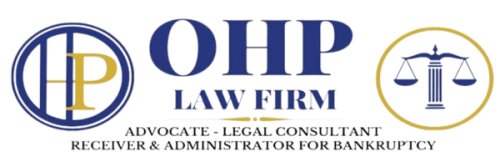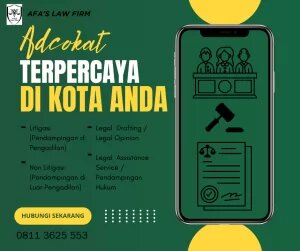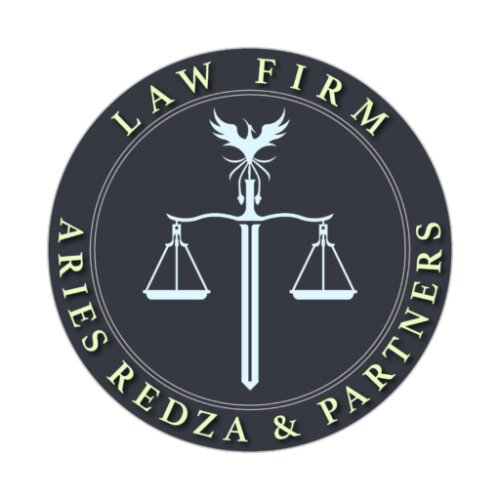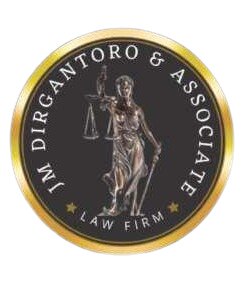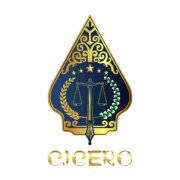Best Admiralty & Maritime Lawyers in Indonesia
Share your needs with us, get contacted by law firms.
Free. Takes 2 min.
Or refine your search by selecting a city:
List of the best lawyers in Indonesia
About Admiralty & Maritime Law in Indonesia
Admiralty and Maritime law in Indonesia governs various aspects of maritime activities and navigation. Given Indonesia's vast archipelagic nature and location along key international shipping routes, its maritime industry is both substantial and essential to the nation's economy. This legal field deals with issues ranging from shipping routes, maritime commerce, environmental regulations, and marine conservation to the rights and responsibilities of seamen. The legal system is a blend of international maritime conventions and local laws, making it a complex area requiring specialized knowledge and expertise.
Why You May Need a Lawyer
There are several scenarios in which individuals or companies may require legal assistance in Admiralty & Maritime matters:
- If you are involved in a maritime accident or incident, such as a collision between ships or an oil spill, legal counsel is crucial to navigate liability and regulatory issues.
- When dealing with contracts related to shipbuilding, sale, chartering, or cargo transport, legal expertise ensures compliance with applicable laws and standards.
- In cases of employment disputes involving seafarers, including wage disputes or wrongful termination, lawyers can provide guidance on the seafarers' rights under Indonesian and international laws.
- If your business is subject to environmental regulations or faces environmental claims, a lawyer can help manage compliance and defend against enforcement actions.
- For litigation or arbitration concerning maritime claims, such as salvage, piracy, or vessel arrests, experienced legal advice is essential.
Local Laws Overview
The legal framework for Admiralty & Maritime in Indonesia comprises national laws and international treaties. The primary national legislation includes:
- The Shipping Law No. 17 of 2008 regulates shipping activities, including licensing, ship registration, and marine safety standards.
- The Law on Waters No. 6 of 1996 provides regulations regarding territorial waters, internal waters, and other maritime zones.
- The Environmental Law No. 32 of 2009 addresses marine pollution and environmental protection.
- Indonesia is also a party to various international maritime conventions, such as the United Nations Convention on the Law of the Sea (UNCLOS), which influences its maritime laws and policies.
Frequently Asked Questions
What is Admiralty & Maritime Law?
Admiralty & Maritime Law is a specialized area of law that governs maritime activities, including shipping, navigation, waters, insurance, and the transportation of goods and passengers over water.
How does Indonesian maritime law interact with international conventions?
Indonesian maritime law incorporates and aligns with international conventions, particularly those established by the International Maritime Organization (IMO) and UNCLOS, to ensure compliance with global standards and facilitate international maritime trade.
What should I do if I'm involved in a shipping accident?
If you're involved in a shipping accident, it's important to report the incident to the relevant authorities, seek immediate legal advice, and document as much information as possible about the event.
How can I protect my maritime business interests legally?
Regularly consult with maritime legal experts to ensure your operations comply with local and international laws, draft clear contracts, and implement robust risk management practices.
What are the consequences of maritime pollution under Indonesian law?
Maritime pollution can result in significant fines, damages claims, and criminal charges. Ensuring compliance with environmental regulations is crucial to avoid legal repercussions.
How is maritime labor regulated in Indonesia?
Maritime labor in Indonesia is regulated under the Manpower Law and maritime-specific legislation, including standards for working conditions, wages, contracts, and dispute resolution mechanisms for seafarers.
Can a foreign vessel be arrested in Indonesian waters?
Yes, under certain circumstances, such as for unpaid debts or claims, foreign vessels can be arrested or detained in Indonesian waters, following specific legal procedures.
What are the requirements for registering a ship in Indonesia?
Ship registration in Indonesia requires compliance with national and international regulations, including ownership documentation, technical specifications, and safety standards.
How can disputes over maritime contracts be resolved?
Maritime contract disputes can be resolved through litigation or alternative dispute resolution methods, such as arbitration or mediation, often specified within the contract terms.
Are there restrictions on foreign ownership of maritime businesses in Indonesia?
Yes, foreign ownership in maritime businesses may be subject to restrictions under Indonesian investment laws, requiring collaboration with local partners or meeting specific criteria.
Additional Resources
For more information and assistance, consider exploring the following resources:
- The Ministry of Transportation of the Republic of Indonesia: Oversees maritime transport policies and regulations.
- The Indonesian National Shipowners' Association (INSA): Provides industry insights and advocacy for shipping companies.
- The International Maritime Organization (IMO): Offers international guidelines and standards for maritime operations.
Next Steps
If you need legal assistance in Admiralty & Maritime matters, consider taking the following steps:
- Identify and gather all relevant documents and details related to your maritime issue.
- Consult with an experienced Indonesian Admiralty & Maritime lawyer to understand your legal options and obligations.
- Ensure your lawyer is well-versed in both local laws and international conventions pertinent to your case.
- Consider joining relevant industry associations or forums for additional support and networking opportunities.
- Stay informed about the latest developments in maritime laws and regulations to better manage your legal compliance.
Lawzana helps you find the best lawyers and law firms in Indonesia through a curated and pre-screened list of qualified legal professionals. Our platform offers rankings and detailed profiles of attorneys and law firms, allowing you to compare based on practice areas, including Admiralty & Maritime, experience, and client feedback.
Each profile includes a description of the firm's areas of practice, client reviews, team members and partners, year of establishment, spoken languages, office locations, contact information, social media presence, and any published articles or resources. Most firms on our platform speak English and are experienced in both local and international legal matters.
Get a quote from top-rated law firms in Indonesia — quickly, securely, and without unnecessary hassle.
Disclaimer:
The information provided on this page is for general informational purposes only and does not constitute legal advice. While we strive to ensure the accuracy and relevance of the content, legal information may change over time, and interpretations of the law can vary. You should always consult with a qualified legal professional for advice specific to your situation.
We disclaim all liability for actions taken or not taken based on the content of this page. If you believe any information is incorrect or outdated, please contact us, and we will review and update it where appropriate.
Browse admiralty & maritime law firms by city in Indonesia
Refine your search by selecting a city.




